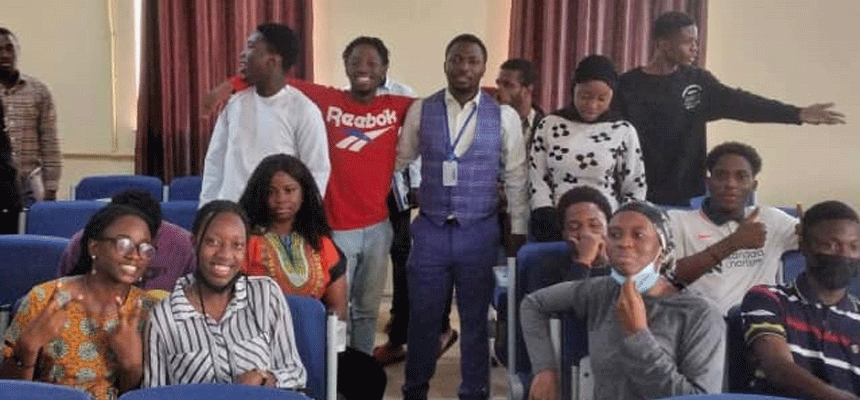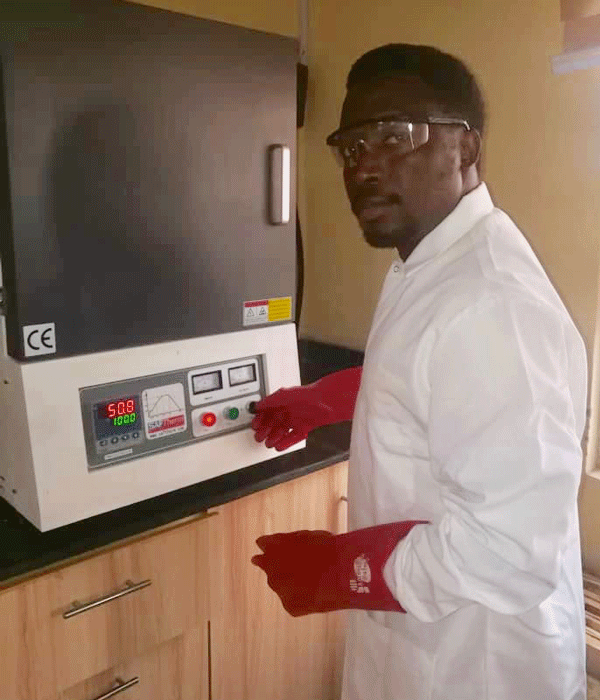
“If one knows not which port one sails, no wind is favourable,” reads an old Latin motto attributed to the Roman Stoic philosopher Seneca the Younger.
This was not the case with Adekunle Adeleke, a Senior Lecturer and the Head of the Department of Mechanical Engineering at Nile University of Nigeria, in Abuja, who is now ranked as the top scientist in his university, and the forty-second in the whole country.
Adeleke's vision of his career has always been clear: "From the years of my primary school, I developed a passion for building small constructions with my friends around my house. This is how I decided I wanted to be an engineer," he recalled.
His education reflects his passion: he earned a BSc, an MSc and a PhD in mechanical engineering from the University of Ilorin, in Ilorin, Nigeria, in 2009, 2013 and 2018, respectively. But a true life-changing event was TWAS-Council of Scientific and Industrial Research (CSIR) of India Postgraduate Fellowship that he received in 2016.
"TWAS-CSIR Fellowship changed everything for me," Adeleke said. "Working with two experienced scientists, Dayanand Paswan and Madurai Malathi at the CSIR-National Metallurgical Laboratory, in Jamshedpur, India, I learned how to prepare high-quality briquettes from lean-grade coal and roasted biomass." Biomass is plant-based waste material used as fuel to produce heat or electricity.
Energy supply stemming from fossil fuels and hydropower is not easily available in Nigeria, and there is a need to diversify energy sources, looking for green options. Therefore, Adeleke focused on recycling biomass that would, otherwise, be discarded.
"We torrefied wastes of melina wood (Gmelina arborea)—a fast-growing white wood used to make affordable and light-weight percussion instruments—and mixed it with lean grade coal fines to obtain compressed blocks called briquettes, which can be used for combustion, in industrial and domestic settings," he explained.
The work was a success: The feedstock produced through TWAS-CSIR-sponsored Fellowship was patented in Nigeria and allowed Adeleke to author 14 articles in top journals, including Nature, and with international publishers like Elsevier.
Today, despite his relatively young age—he is 36—he has published more than 90 scientific articles in international journals.
After serving as Chair of the Sustainable Development Goal 9 Research Team and as Postgraduate Coordinator of the Department of Mechanical Engineering, both at Landmark University, in Omu-Aran, Nigeria, Adeleke is now Head of the Department of Mechanical Engineering at Nile University.
In the last years, the quality of his research has increased so much that he has ranked among the top 200 Nigerian researchers, in 2020, and among the top 50, in 2021, still in Nigeria.
In 2022, he was ranked first best researcher at Nile University and forty-second best researcher in the whole Nigeria. The evaluation originated from SciVal, a web analytics tool managed by Elsevier, which compares over 20,000 research institutions and their researchers from 230 countries.
Adeleke's commitment towards finding green sources of energy continues. With his team, they locally designed and produced a mini-reactor that transforms biomass and plastic wastes into two energy products: bio-oil and biochar—a black residue made of carbon and ashes, which remains after burning biomass.
He also succeeded in using renewable sources, such as a mixture of biomass and organic varnishes for synthesizing printing ink, thereby paving the way to reducing the importation of ink for printers in Nigeria.
But his most important project is still in the pipeline: the production of 'reduced iron'—a form in which iron ores are devoid of oxygen atoms and take the shape of lumps, fines or pellets—using lean-grade coal and torrefied biomass as carbonic sources.
The project could change the whole iron and steel industry in Nigeria. Steel is made from iron, and producing high amounts of reduced iron would decrease, or even suppress, the importation of steel from other countries, with huge benefits for the Nigerian economy.
"I will be forever grateful to TWAS and CSIR for the robust support that my career received through their Fellowship. And I make it my personal mandate trying to transmit my passion and skills to the younger generations." From his blog, in fact, Adeleke writes daily to inspire young people not to give up and try their best to live well and purposefully.
Cristina Serra

